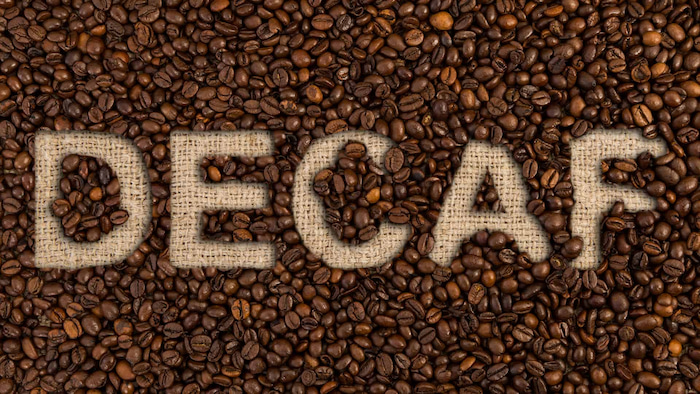
Coffee is the third most consumed drink in the world, right behind water and tea. Even though there were attempts to ban coffee over the years, no one managed to do it. People kept on coming back to this magical drink for more. To this day, some of us can’t imagine our day without a cup or two of coffee.
But many people have a problem with the main ingredient of coffee, caffeine. That’s why we have decaf coffee that was created in 1905 by a German coffee merchant, Ludwig Roselius. Since then, people have been enjoying the wonderful flavour of coffee without the side effects of caffeine.
What’s Decaf Coffee?
This mesmerising drink is very similar to regular coffee as we know it. The biggest difference is the amount of caffeine inside it. High-quality low-acid decaf coffee is made with beans whose caffeine has been removed. In some cases, it can go up to 90% caffeine-free. This doesn’t mean that the coffee is 100% caffeine–free.

There are still some small amounts in it. During the decaffeinating process, some of the smell and taste get lost. That’s why this coffee is less bitter and not so aromatic. A regular cup of this coffee around 230ml can have around 7mg of caffeine compared to a regular one which can have between 70-140mg.
How Is Decaf Coffee Made?
Removing the caffeine starts with the beans. It’s not a natural but a scientific process. It occurs while the beans are green and before they’re roasted and ground. If it’s done after, the coffee will taste like burnt wood, which is not a pleasant smell or taste. In general, it can be done in one of four ways – direct or indirect solvent, supercritical carbon dioxide or Swiss water process.
Indirect Solvent Process
The indirect-solvent method involves soaking coffee beans for many hours in water that has nearly reached boiling point. This way manufacturers extract the caffeine and some other flavourings and oils. They separate the water and move it to another tank where they wash the beans with methylene chloride for roughly 10 hours.
After forming a strong chemical link with the caffeine, the chemical solvent is heated in order to evaporate together with the caffeine. Finally, the beans are soaked back in the liquid so they can take the oils and flavours back. This is a process most commonly used in Europe, particularly in Germany.
Direct Solvent Process
This is a process where the solvent is directly applied to the beans. It’s either ethyl acetate or methylene chloride. The latter is used as a paint remover and the former is a fruit ether, which is an ingredient of vinegar. Even though they may sound scary and unsafe, these ingredients are absolutely safe. The solvent is extremely diluted, and the chances of poisoning are very low to none.

The procedure involves soaking the coffee beans in water first. Then they’re coated in the solvent. This will gradually extract the coffee. The process lasts for about 10 hours and the beans are repeatedly washed until they’re almost caffeine-free.
Supercritical Carbon Dioxide Process
Just like the process itself, the name is interesting as well. This decaffeination process combines carbon dioxide and pressure to extract the caffeine from the beans. First, the beans are soaked and then poured into a pressurised pot. The pressure this pot can handle is 250 times higher than usual.
Next, manufacturers add liquid carbon dioxide into the pot where it binds to the bean’s caffeine. The last step is to transfer the liquid carbon dioxide into another pot and finally, the beans are decaffeinated.
Swiss Water Process
This is the most natural process of them all because it involves only water as an ingredient. It starts with soaking the beans in a mixture of water and green coffee extract solution. Next, the solution is filtered by using charcoal. During filtration, the caffeine gets trapped by the charcoal and stays away from the beans. Coffee producers repeat this stage until they get the desired caffeine content. Many of them prefer this way of decaffeinating because they consider it “pure”.
What are the Benefits of Drinking Decaf Coffee?
Despite having less caffeine, decaf coffee has many of the same advantages as regular coffee. You can reap the benefits without the side effects of caffeine, such as jitters, anxiety and trouble sleeping.
Rich With Antioxidants
In our diets, decaffeinated coffee can be a fantastic source of antioxidants. It’s practically stuffed with the substance, which is really good for our health. The 2 main antioxidants it has are polyphenols and hydrocinnamic acid. They fight free radicals, and One benefit of this antioxidant boost is a decreased risk of getting cancer, type 2 diabetes, and heart disease.
Improves Sleep
Because it’s a stimulant, caffeine is known for helping us stay awake and attentive. Decaf coffee lacks it, but regular coffee is loaded with it. You can enjoy the amazing coffee flavour without the caffeine boost by consuming a cup of decaf coffee even before bedtime. Reduce your caffeine intake by switching to decaf coffee if you’re experiencing trouble falling asleep and lack energy in the morning.

Loaded with Vitamins
Decaf coffee is packed with important vitamins, not just antioxidants. One cup can feed your body with roughly 5% more potassium, 2.5% more B3, and 2.4% more magnesium than the RDI (recommended dietary intake). If you drink a few cups each day, you can easily top up your required daily dose of vitamins.
Improves Brain Health
Studies on the effects of decaf have revealed that it’s linked to better brain health. It has been discovered that decaf coffee can help to preserve the brain’s neurones. As a result, neurological illnesses like Parkinson’s and Alzheimer’s may not even develop. Polyphenols also boost our cognitive performance which improves our memory.
Reduces Heartburn
Consuming regular coffee can sometimes cause unpleasant heartburn or acid reflux. There is some evidence in studies linking low acid decaf coffee to less heartburn. If you frequently get heartburn, you might want to switch to decaf coffee.















